Video Recordings Available for Purchase
from Data on Purpose 2015
Using data for social change is one of the greatest challenges and opportunities facing the social sector. Stanford Social Innovation Review assembled data experts from government, nonprofit, business, and academia at Stanford University for a discussion about the growing proliferation of data in the nonprofit sector and our increasing ability to make productive use of it, guard it, and share it.
Video recordings of the June 2, 2015 conference are now available for purchase. Who should view these sessions? Anyone who wants to learn more about using data effectively, strategically, and securely within their organization—not just technology officers!
You will learn about:
- Key considerations for collecting and using data including safety, security, ethics, and effectiveness
- Using data science for social good
- Creating and structuring policies and procedures around data and propagating them throughout your organization
- Evaluating outcomes with data
- Capacity building with data
Price: $99, which includes unlimited access to the video recordings as many times as you’d like for twelve months and downloadable slides.
Sessions
Keynote: Using Data to Create Social Change
Nancy Lublin, founder and CEO, Crisis Text Line
Keynote: How to Create a Data-Driven Organization
Jim Fruchterman, founder and CEO, Benetech
Panel: Should Your Data Be Open or Closed?
Lucy Bernholz, visiting scholar, Center on Philanthropy and Civil Society, Stanford University; co-leader, Digital Civil Society Lab
Matt Stempeck, director of civic technology, Microsoft
Brad Presner, director of analytics, Living Goods
Anoush Tatevossian, strategic communications and partnerships officer, UN Global Pulse
Case Study: A Higher Sense of Purpose with Data
Neal Myrick, corporate responsibility director, Tableau Foundation
Lynzi Ziegenhagen, founder and CEO, Schoozilla,Technology Innovation Team Aspire Public Schools
Panel: Data Mining for Social Impact
Andrew Means, cofounder, The Impact Lab; associate director, Center for Data Science and Public Policy, University of Chicago
Rob Acker, CEO, Salesforce.org
David Henderson, director of analytics, Family Independence Initiative
Mark Latonero, fellow, Data & Society; research director, USC Annenberg Center on Communication Leadership & Policy
Panel: Using Data Visualization to Change the Conversation
Jake Porway, founder and executive director, DataKind
Michael Greene, executive director, Social Progress Imperative
Rahul Bhargava, research scientist, MIT Center for Civic Media
Matthew Scharpnick, cofounder and chief strategy officer, Elefint Designs
Kim Rees, head of information visualization, Periscopic
Keynote: APIs for Good: A Bestiary of the Networked World
Dylan Hendricks, Institute for the Future
Tweets From Conference
Didn't expect to learn a new pop culture term in the first few min of a data conference #dataonfleek @nancylublin @SSIReview #dataonpurpose
— Matt Scharpnick (@mattscharp) June 2, 2015
#dataonpurpose "It is about what works, not what has always worked" when it comes to using data to improve results @nancylublin
— Beth Kanter (@kanter) June 2, 2015
"Data mining has the potential to dramatically change how the social sector works"; transformation is happening @meansandrew #dataonpurpose
— Monte Desai (@MonteDesai) June 2, 2015
"The idea of using tech, tools, and data to address social issues has reached the highest levels of government" @latonero #dataonpurpose
— Matt Stempeck (@mstem) June 2, 2015
"Risks, harms & benefits calculus for social sector is different than for private sector" @latonero #dataonpurpose pic.twitter.com/9tAogw3Kwk
— Global Pulse (@UNGlobalPulse) June 2, 2015
Speaker Bios
Rob Acker, CEO, Salesforce.org
Twitter: @SFDCFoundation
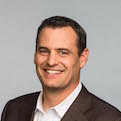 Rob Acker is the CEO of Salesforce.org. At Salesforce.org, Acker is focused on delivering world-class technology to nonprofits and higher education customers. Acker has been with Salesforce for 15 years and prior to leading Salesforce.org, he served as a senior vice president of sales. Before joining Salesforce, Acker worked in application sales at Oracle. Acker holds a bachelor’s degree in political science and economics from Gonzaga University.
Rob Acker is the CEO of Salesforce.org. At Salesforce.org, Acker is focused on delivering world-class technology to nonprofits and higher education customers. Acker has been with Salesforce for 15 years and prior to leading Salesforce.org, he served as a senior vice president of sales. Before joining Salesforce, Acker worked in application sales at Oracle. Acker holds a bachelor’s degree in political science and economics from Gonzaga University.
Lucy Bernholz, visiting scholar, Center on Philanthropy and Civil Society, Stanford University; co-leader, Digital Civil Society Lab
Twitter: @p2173
 Lucy Bernholz is a philanthropy wonk trying to understand how we create, fund, and distribute shared social goods in the digital age—what she calls the future of good. She writes extensively on philanthropy, technology, information, and policy on her blog, philanthropy2173.com. Bernholz is a visiting scholar at the Stanford University Center on Philanthropy and Civil Society, where she is helping to launch the Digital Civil Society Lab. She is also a visiting scholar at The David and Lucile Packard Foundation, where she is writing a book while also working with Foundation colleagues to think about foundations in the digital age.
Lucy Bernholz is a philanthropy wonk trying to understand how we create, fund, and distribute shared social goods in the digital age—what she calls the future of good. She writes extensively on philanthropy, technology, information, and policy on her blog, philanthropy2173.com. Bernholz is a visiting scholar at the Stanford University Center on Philanthropy and Civil Society, where she is helping to launch the Digital Civil Society Lab. She is also a visiting scholar at The David and Lucile Packard Foundation, where she is writing a book while also working with Foundation colleagues to think about foundations in the digital age.
Rahul Bhargava, research scientist, MIT Center for Civic Media
Twitter: @rahulbot/@CivicMIT
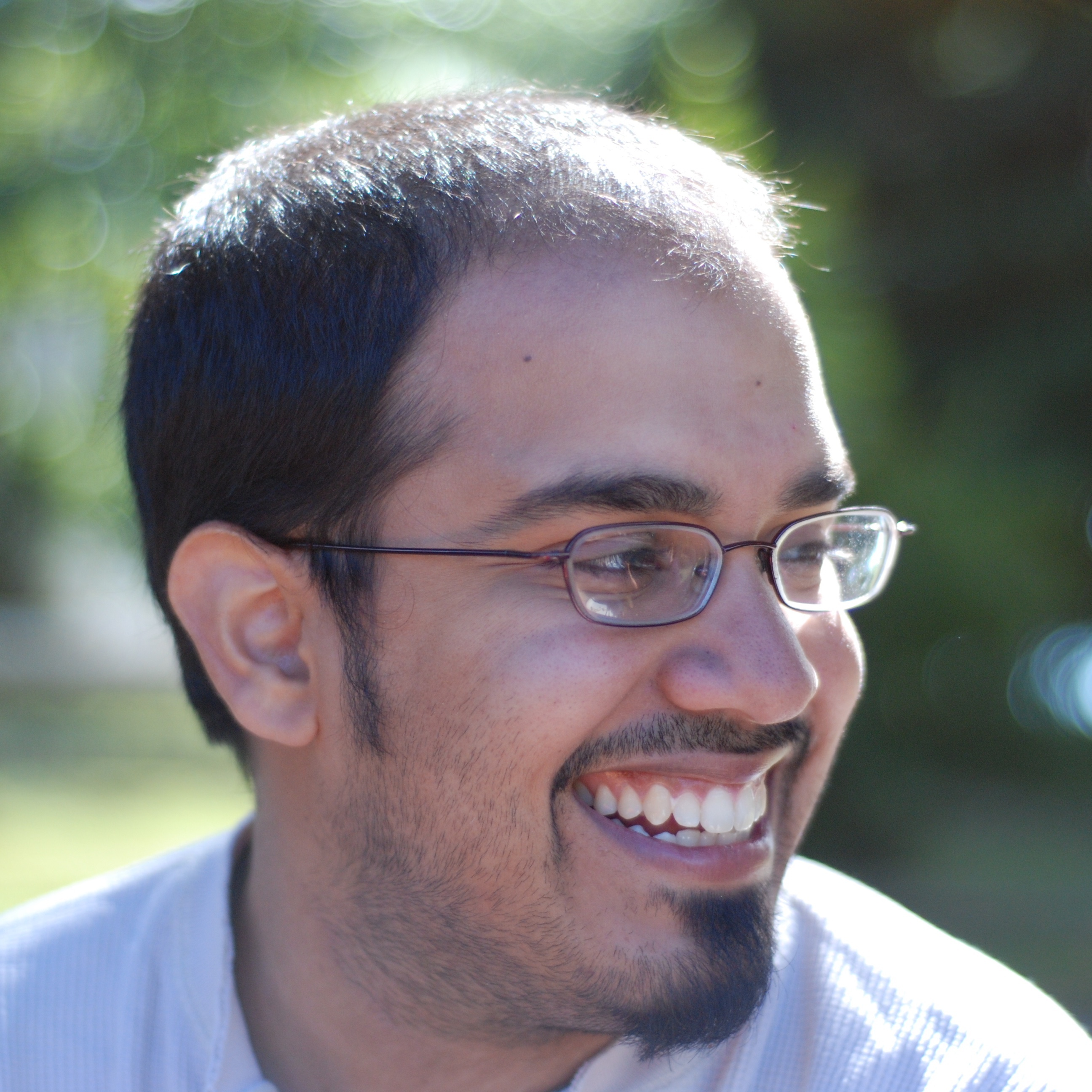 Rahul Bhargava leads hands-on data workshops around the world. In his current role as research scientist at the MIT Center for Civic Media, he manages development and outreach for a number of participatory data projects. His Data Therapy workshops have been bringing people together around data with engaging activities for over 10 years. Bhargava combines a background in interactive robotics, popular education, and effective data presentation to build creative and playful activities that introduce data literacy in appropriate ways to a variety of audiences. He is a technologist, educator, and father based in Somerville, Mass.
Rahul Bhargava leads hands-on data workshops around the world. In his current role as research scientist at the MIT Center for Civic Media, he manages development and outreach for a number of participatory data projects. His Data Therapy workshops have been bringing people together around data with engaging activities for over 10 years. Bhargava combines a background in interactive robotics, popular education, and effective data presentation to build creative and playful activities that introduce data literacy in appropriate ways to a variety of audiences. He is a technologist, educator, and father based in Somerville, Mass.
Jim Fruchterman, founder and CEO, Benetech
Twitter: @JimFruchterman/@Benetech
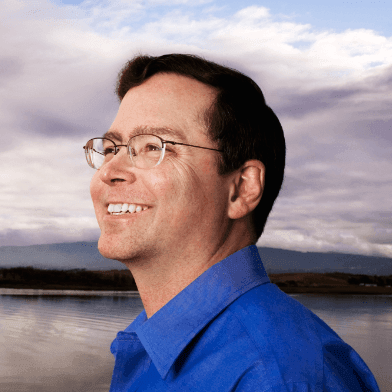 Jim Fruchterman is the founder and CEO of Benetech, a Silicon Valley nonprofit technology company that develops software applications to address unmet needs of users in the social sector. He is the recipient of numerous awards recognizing his work as a pioneering social entrepreneur, including the MacArthur Fellowship, Caltech’s Distinguished Alumni Award, and the Skoll Award for Social Entrepreneurship. Since its founding in 1989, Benetech has touched the lives of hundreds of thousands of people. Its tools and services have transformed the ways in which people with disabilities access printed information, at-risk human rights defenders safely document abuse, and environmental practitioners succeed in their efforts to protect species and ecosystems. Through his work, Fruchterman continues to advance his vision of a world in which the benefits of technology reach all of humanity, not just the wealthiest and most able five percent.
Jim Fruchterman is the founder and CEO of Benetech, a Silicon Valley nonprofit technology company that develops software applications to address unmet needs of users in the social sector. He is the recipient of numerous awards recognizing his work as a pioneering social entrepreneur, including the MacArthur Fellowship, Caltech’s Distinguished Alumni Award, and the Skoll Award for Social Entrepreneurship. Since its founding in 1989, Benetech has touched the lives of hundreds of thousands of people. Its tools and services have transformed the ways in which people with disabilities access printed information, at-risk human rights defenders safely document abuse, and environmental practitioners succeed in their efforts to protect species and ecosystems. Through his work, Fruchterman continues to advance his vision of a world in which the benefits of technology reach all of humanity, not just the wealthiest and most able five percent.
Michael Green, executive director, Social Progress Imperative
Twitter: @shepleygreen/@socprogress
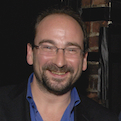 Michael Green is executive director of the Social Progress Imperative. An economist by training, he is coauthor (with Matthew Bishop of 'The Economist') of Philanthrocapitalism: How Giving Can Save the World and The Road from Ruin: A New Capitalism for a Big Society. Previously Green served as a senior official in the U.K. Government's Department for International Development, where he managed British aid programs to Russia and Ukraine and headed the communications department. He taught economics at Warsaw University in Poland in the early 1990s.
Michael Green is executive director of the Social Progress Imperative. An economist by training, he is coauthor (with Matthew Bishop of 'The Economist') of Philanthrocapitalism: How Giving Can Save the World and The Road from Ruin: A New Capitalism for a Big Society. Previously Green served as a senior official in the U.K. Government's Department for International Development, where he managed British aid programs to Russia and Ukraine and headed the communications department. He taught economics at Warsaw University in Poland in the early 1990s.
David Henderson, director of analytics, Family Independence Initiative
Twitter: @david_henderson/@fiinational
 David Henderson joined FII in 2014 after running a data analytics and technology company for over eight years that built outcomes management solutions for social sector organizations. Henderson’s professional focus is on improving the way social sector organizations utilize information to make high impact decisions. After more than a decade working in and with human service organizations, Henderson is especially interested in exploring the effectiveness of investing directly in low-income communities. Henderson holds a master's degree in public policy and management from Carnegie Mellon University and a bachelor's degree in politics from Pomona College.
David Henderson joined FII in 2014 after running a data analytics and technology company for over eight years that built outcomes management solutions for social sector organizations. Henderson’s professional focus is on improving the way social sector organizations utilize information to make high impact decisions. After more than a decade working in and with human service organizations, Henderson is especially interested in exploring the effectiveness of investing directly in low-income communities. Henderson holds a master's degree in public policy and management from Carnegie Mellon University and a bachelor's degree in politics from Pomona College.
Mark Latonero, fellow, Data & Society; research director, USC Annenberg Center on Communication Leadership & Policy
Twitter: @latonero/@datasociety
 Mark Latonero is a fellow at Data & Society, a new NYC-based research institute focused on the social, ethical, and policy implications of data-centric technologies. He investigates the intersection between data, human security, and human rights. Of particular concern are the complexities that arise when “big data” approaches are used in social interventions involving vulnerable populations. Latonero is also a research professor at the University of Southern California where he leads the Center on Communication Leadership & Policy's Technology and Human Trafficking Initiative. Latonero completed his doctorate at the USC Annenberg School and was a postdoctoral research scholar at the London School of Economics.
Mark Latonero is a fellow at Data & Society, a new NYC-based research institute focused on the social, ethical, and policy implications of data-centric technologies. He investigates the intersection between data, human security, and human rights. Of particular concern are the complexities that arise when “big data” approaches are used in social interventions involving vulnerable populations. Latonero is also a research professor at the University of Southern California where he leads the Center on Communication Leadership & Policy's Technology and Human Trafficking Initiative. Latonero completed his doctorate at the USC Annenberg School and was a postdoctoral research scholar at the London School of Economics.
Nancy Lublin, founder and CEO, Crisis Text Line
Twitter: @nancylublin/@CrisisTextLine
 As former CEO of DoSomething.org, the largest organization for teens and social change in the world, Nancy Lublin is able to name all five members of One Direction without a smidge of sarcasm. An expert on youth, social media, and pop culture, brands like Pepsi and Chase and several tech start-ups have sought her advice and Fast Company has named her to their Most Creative People list. In 2013, while still CEO of DoSomething.org, Lublin turned her popular TED talk into her third company, Crisis Text Line (CTL). CTL is the first 24/7, free, nationwide text line for teens. Prior to leading CTL, Lublin turned a $5,000 inheritance into Dress for Success, which helps women transition from welfare to work in more than 125 cities in 15 countries. She studied politics at Brown University, political theory at Oxford University (as a Marshall Scholar), and has a law degree from New York University. She is the author of the best-selling business book Zilch: The Power of Zero in Business and is one of the top 50 Influencers on LinkedIn.
As former CEO of DoSomething.org, the largest organization for teens and social change in the world, Nancy Lublin is able to name all five members of One Direction without a smidge of sarcasm. An expert on youth, social media, and pop culture, brands like Pepsi and Chase and several tech start-ups have sought her advice and Fast Company has named her to their Most Creative People list. In 2013, while still CEO of DoSomething.org, Lublin turned her popular TED talk into her third company, Crisis Text Line (CTL). CTL is the first 24/7, free, nationwide text line for teens. Prior to leading CTL, Lublin turned a $5,000 inheritance into Dress for Success, which helps women transition from welfare to work in more than 125 cities in 15 countries. She studied politics at Brown University, political theory at Oxford University (as a Marshall Scholar), and has a law degree from New York University. She is the author of the best-selling business book Zilch: The Power of Zero in Business and is one of the top 50 Influencers on LinkedIn.
Andrew Means, cofounder, The Impact Lab; associate director, Center for Data Science & Public Policy, University of Chicago
Twitter: @meansandrew
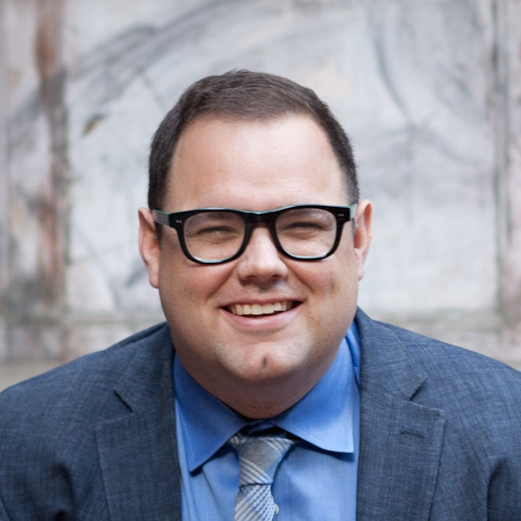 Andrew Means is cofounder of The Impact Lab, a data science shop that works with nonprofits, foundations, and government agencies on solving social problems. He has previously held leadership positions at The University of Chicago’s Center for Data Science & Public Policy, Groupon, and the YMCA of Metropolitan Chicago. He holds a master’s degree in public policy from the Harris School at the University of Chicago and is a trained Six Sigma Green Belt from Motorola. Means is chairman of the board of directors at The Supply and a member of the board of directors at Ingenuity Inc.
Andrew Means is cofounder of The Impact Lab, a data science shop that works with nonprofits, foundations, and government agencies on solving social problems. He has previously held leadership positions at The University of Chicago’s Center for Data Science & Public Policy, Groupon, and the YMCA of Metropolitan Chicago. He holds a master’s degree in public policy from the Harris School at the University of Chicago and is a trained Six Sigma Green Belt from Motorola. Means is chairman of the board of directors at The Supply and a member of the board of directors at Ingenuity Inc.
Neal Myrick, corporate social responsibility director, Tableau Software / Tableau Foundation
Twitter: @NealMyrick
 Neal Myrick is director of corporate social responsibility at Tableau Software, where he leads the company’s efforts in employee service and giving, community impact, and grant making. Within his role, he manages the development of Tableau Foundation. Myrick worked for two software companies, Aldus Corp. (acquired by Adobe) and Visio Corp. (acquired by Microsoft), before becoming managing director of technology at Casey Family Programs, a national foundation focused on foster care with an endowment in excess of two billion dollars. Myrick then became executive director of Groundwire and CEO of Groundwire Consulting, where he helped environmental organizations increase their capacity to engage constituents. Myrick is an active angel investor with Element 8. He has served on nonprofit boards, provides pro bono strategic consulting to nonprofits, and currently focuses his volunteer time on ethical data, diversity and social equity issues.
Neal Myrick is director of corporate social responsibility at Tableau Software, where he leads the company’s efforts in employee service and giving, community impact, and grant making. Within his role, he manages the development of Tableau Foundation. Myrick worked for two software companies, Aldus Corp. (acquired by Adobe) and Visio Corp. (acquired by Microsoft), before becoming managing director of technology at Casey Family Programs, a national foundation focused on foster care with an endowment in excess of two billion dollars. Myrick then became executive director of Groundwire and CEO of Groundwire Consulting, where he helped environmental organizations increase their capacity to engage constituents. Myrick is an active angel investor with Element 8. He has served on nonprofit boards, provides pro bono strategic consulting to nonprofits, and currently focuses his volunteer time on ethical data, diversity and social equity issues.
Jake Porway, founder and executive director, DataKind
Twitter: @jakeporway/@DataKind
 Jake Porway is the founder and executive director of DataKind, a nonprofit that harnesses the power of data science in the service of humanity. He is an alumni of the New York Times R&D Lab, and has worked at Google and Bell Labs. A recognized leader in the data for good movement, he has spoken at IBM, Microsoft, Google, and the White House. He is also a PopTech Social Innovation Fellow and a National Geographic Emerging Explorer. He holds a bachelor’s degree in computer science from Columbia University and a master’s degree and a doctorate in statistics from University of California, Los Angeles.
Jake Porway is the founder and executive director of DataKind, a nonprofit that harnesses the power of data science in the service of humanity. He is an alumni of the New York Times R&D Lab, and has worked at Google and Bell Labs. A recognized leader in the data for good movement, he has spoken at IBM, Microsoft, Google, and the White House. He is also a PopTech Social Innovation Fellow and a National Geographic Emerging Explorer. He holds a bachelor’s degree in computer science from Columbia University and a master’s degree and a doctorate in statistics from University of California, Los Angeles.
Brad Presner, director of analytics, Living Goods
Twitter: @BradPresner/@Living_Goods
 Brad Presner is the director of analytics at Living Goods, a nonprofit that works in community health in East Africa by empowering the poor through networks of ‘Avon-like’ micro-entrepreneurs who go door-to-door teaching families how to improve their health and wealth while selling a broad assortment of affordable, life-changing products. Presner leads Living Goods’ capacity to gather, analyze and utilize information that drives improvement of the organization's operations, as well as manages the development of Android-based mobile health technology that is used by Living Goods' Community Health Providers. Presner joined Living Goods in April 2013, having previously worked at Acumen Fund, where he managed their metrics and impact work across a global portfolio of impact investments. Prior to Acumen, Presner was with Google.org, where he led M&E efforts that built a culture of rigorous and thoughtful analytical impact assessment. Presner holds a bachelor’s degree in mechanical engineering from Stanford University.
Brad Presner is the director of analytics at Living Goods, a nonprofit that works in community health in East Africa by empowering the poor through networks of ‘Avon-like’ micro-entrepreneurs who go door-to-door teaching families how to improve their health and wealth while selling a broad assortment of affordable, life-changing products. Presner leads Living Goods’ capacity to gather, analyze and utilize information that drives improvement of the organization's operations, as well as manages the development of Android-based mobile health technology that is used by Living Goods' Community Health Providers. Presner joined Living Goods in April 2013, having previously worked at Acumen Fund, where he managed their metrics and impact work across a global portfolio of impact investments. Prior to Acumen, Presner was with Google.org, where he led M&E efforts that built a culture of rigorous and thoughtful analytical impact assessment. Presner holds a bachelor’s degree in mechanical engineering from Stanford University.
Kim Rees, head of information visualization, Periscopic
Twitter: @Periscopic
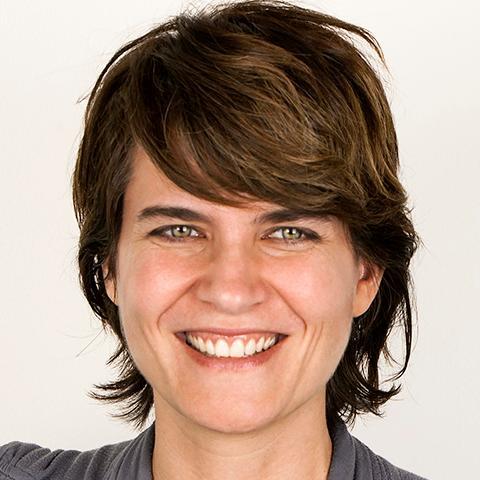 Kim Rees is head of information visualization at Periscopic, and is a prominent individual in the data visualization community. Periscopic is a socially-conscious data visualization firm that helps companies and organizations promote information transparency and public awareness. From endangered species, to sustainability, to human rights, to social justice, it is our goal to use technology to visualize solutions that engage the public and deliver messages of action.
Kim Rees is head of information visualization at Periscopic, and is a prominent individual in the data visualization community. Periscopic is a socially-conscious data visualization firm that helps companies and organizations promote information transparency and public awareness. From endangered species, to sustainability, to human rights, to social justice, it is our goal to use technology to visualize solutions that engage the public and deliver messages of action.
Matthew Scharpnick, cofounder and chief strategy officer, Elefint Designs
Twitter: @mattscharp/@elefint
 Matthew Scharpnick is the cofounder and chief strategy officer of Elefint Designs, a strategic design studio that works with good causes. Combining strategy with design, Elefint helps nonprofits, NGOs and other social sector organizations tell compelling stories and achieve greater impact. Scharpnick specializes in branding, design strategy, storytelling, and data visualization.
Matthew Scharpnick is the cofounder and chief strategy officer of Elefint Designs, a strategic design studio that works with good causes. Combining strategy with design, Elefint helps nonprofits, NGOs and other social sector organizations tell compelling stories and achieve greater impact. Scharpnick specializes in branding, design strategy, storytelling, and data visualization.
Matt Stempeck, director of civic technology, Microsoft
Twitter: @mstem/@MicrosoftNY
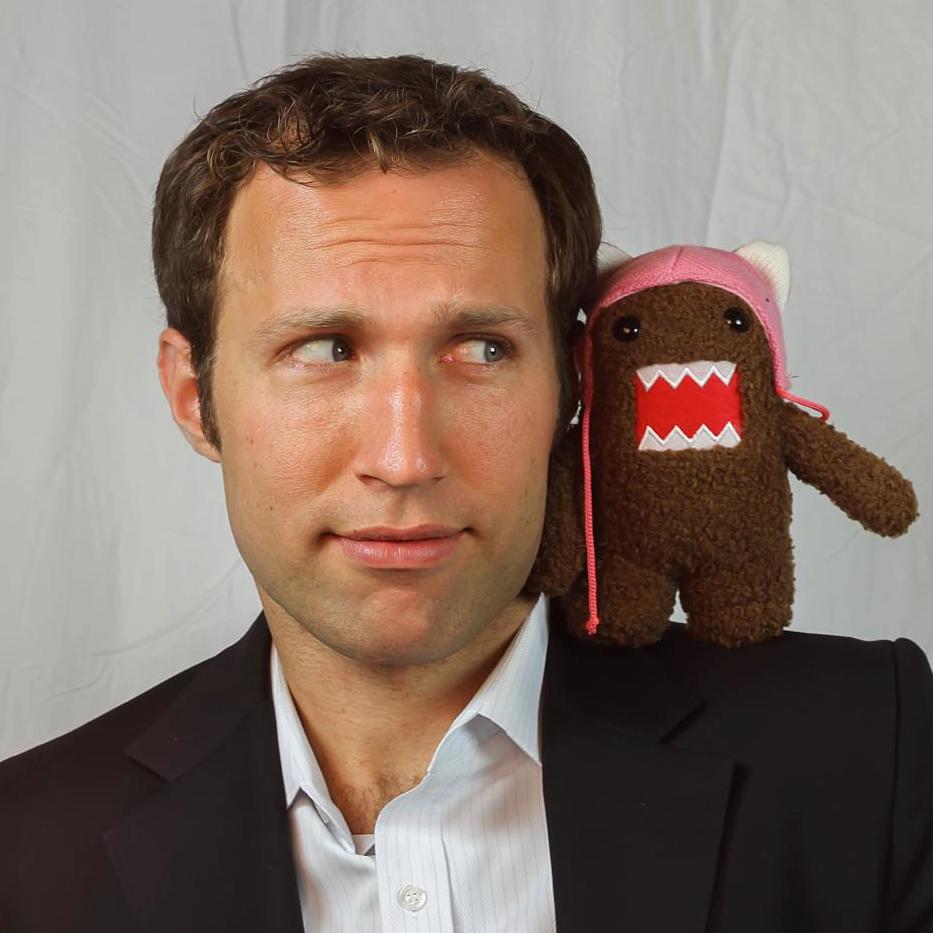 Matt Stempeck is the director of civic technology at Microsoft, where he applies new technologies toward shared problems. Matt has a master's degree from the MIT Media Lab, and a bachelor’s degree in government and politics from the University of Maryland College Park.
Matt Stempeck is the director of civic technology at Microsoft, where he applies new technologies toward shared problems. Matt has a master's degree from the MIT Media Lab, and a bachelor’s degree in government and politics from the University of Maryland College Park.
Anoush Tatevossian, strategic communications and partnerships officer, UN Global Pulse
Twitter: @artate/@UNGlobalPulse
 Anoush Rima Tatevossian leads global strategic partnerships and communications for UN Global Pulse. Global Pulse is an innovation initiative of the UN Secretary-General, which focuses on leveraging the opportunities afforded by big data and real-time analytics for global development and resilience through its network of "Pulse Labs." Previously, she has worked at MobileActive.org - a community of practitioners utilizing mobile technology for development, and as director of the Armenian Volunteer Corps, a grassroots organization in Yerevan, Armenia. She holds a bachelor's degree in government with a concentration in international development from the College of William & Mary, and a master's degree in public diplomacy from the USC Annenberg School.
Anoush Rima Tatevossian leads global strategic partnerships and communications for UN Global Pulse. Global Pulse is an innovation initiative of the UN Secretary-General, which focuses on leveraging the opportunities afforded by big data and real-time analytics for global development and resilience through its network of "Pulse Labs." Previously, she has worked at MobileActive.org - a community of practitioners utilizing mobile technology for development, and as director of the Armenian Volunteer Corps, a grassroots organization in Yerevan, Armenia. She holds a bachelor's degree in government with a concentration in international development from the College of William & Mary, and a master's degree in public diplomacy from the USC Annenberg School.
Lynzi Ziegenhagen, founder and chief executive officer, Schoolzilla; Technology Innovation Team, Aspire Public Schools
Twitter: @lynziziegen
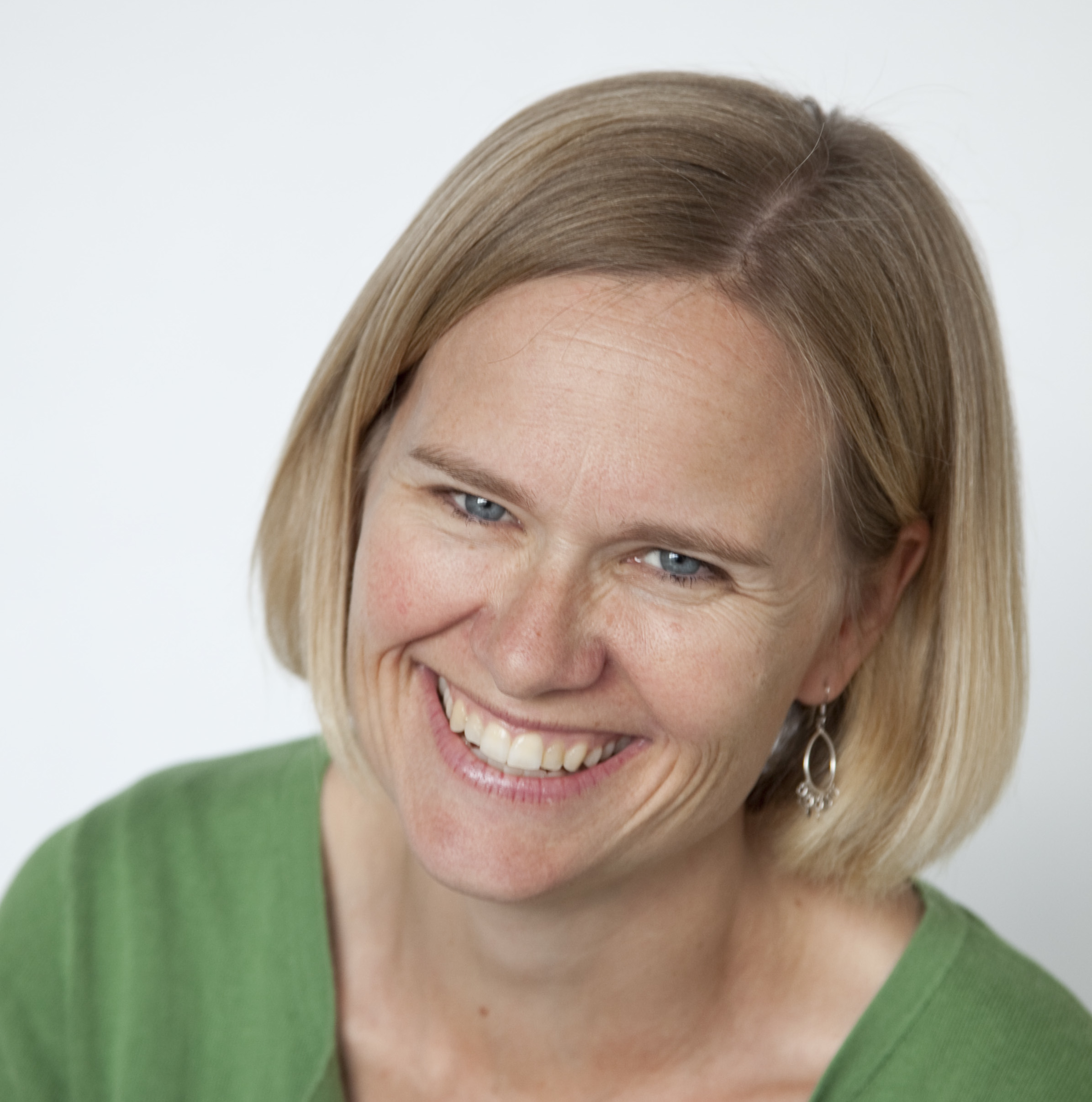 Lynzi Ziegenhagen founded the technology innovation team at Aspire Public Schools in 2008 to ensure that every Aspire teacher, principal, and leader had access to timely, accurate and actionable data. Five years later, she started Schoolzilla to realize an even bigger vision: sharing the same proven data tools with every school in America. Ziegenhagen graduated from Stanford with a degree in symbolic systems and holds a master's degree in computer science from the Naval Postgraduate School. Prior to joining Aspire, she ran her own business creating software for nonprofit organizations, led product management at a start-up, and had stints at Microsoft, Booz Allen and The Children's Partnership.
Lynzi Ziegenhagen founded the technology innovation team at Aspire Public Schools in 2008 to ensure that every Aspire teacher, principal, and leader had access to timely, accurate and actionable data. Five years later, she started Schoolzilla to realize an even bigger vision: sharing the same proven data tools with every school in America. Ziegenhagen graduated from Stanford with a degree in symbolic systems and holds a master's degree in computer science from the Naval Postgraduate School. Prior to joining Aspire, she ran her own business creating software for nonprofit organizations, led product management at a start-up, and had stints at Microsoft, Booz Allen and The Children's Partnership.
Sponsors
Produced by:
Visionary Sponsor:
Impact Sponsors:
Supporting Sponsors:










